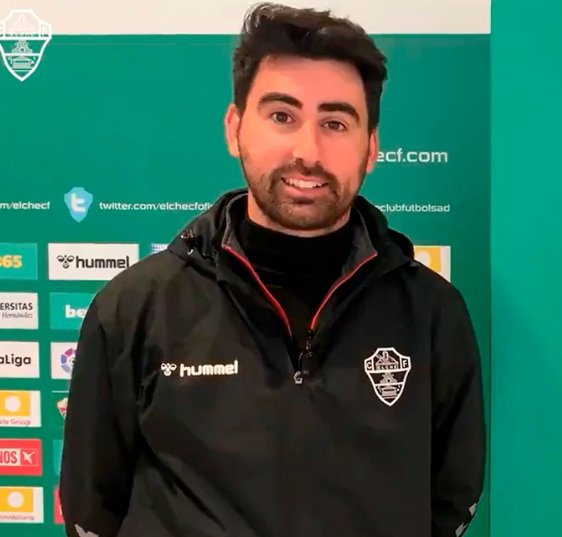Pau Quesada
Pau Quesada construyó su camino en el fútbol desde la observación táctica y la formación juvenil, sin haber sido futbolista profesional. Su vocación por el desarrollo de talento lo llevó a ocupar un lugar clave en el Sevilla FC, donde combinó método, análisis y acompañamiento humano para formar jugadores con proyección. Su trayectoria refleja una pasión sostenida por el juego y una ética de trabajo enfocada en la formación integral.

Formación entre el césped y la mirada táctica
Pau Quesada no emergió del escaparate mediático que proyecta figuras a la fama desde una cancha. Su recorrido no partió desde una carrera profesional como futbolista, sino desde una comprensión profunda del juego, cultivada desde muy joven en su entorno natal de Denia. Su vínculo con el fútbol se desarrolló desde la observación y el análisis, más que desde la práctica competitiva. Esa perspectiva lo condujo hacia un perfil técnico que ganaría relevancia en distintos ámbitos del fútbol formativo español.
Antes de vincularse a clubes de renombre, Quesada consolidó una visión metodológica que lo posicionó como referente en estructuras de cantera. Su capacidad para identificar potencial, construir identidad de equipo y comunicar conceptos complejos con claridad lo convirtió en una figura respetada en círculos especializados, particularmente en categorías inferiores.
La etapa en el Sevilla FC como expresión de un modelo
Su trabajo en el Sevilla FC fue clave para consolidar un enfoque integral del desarrollo de jugadores. Asumió responsabilidades como entrenador del Sevilla Atlético, el filial del club, pero también participó activamente en la construcción de procesos que conectaban la formación con la élite. Esa etapa mostró la coherencia entre su convicción formativa y los resultados medibles en rendimiento colectivo e individual.
Durante la temporada 2022-2023, con un contexto complejo en la dirección técnica del primer equipo, Quesada fue llamado a formar parte del cuerpo técnico como asistente de Jorge Sampaoli y, posteriormente, de José Luis Mendilibar. No se trató de una promoción circunstancial, sino de una validación de su capacidad para integrar talento joven y visión táctica en escenarios de alta exigencia.
Su intervención fue particularmente valorada en el proceso de adaptación de juveniles al primer equipo, articulando aspectos físicos, emocionales y técnicos. Varios jugadores que hoy integran el plantel profesional pasaron por sus manos, no solo como nombres a potenciar, sino como proyectos de persona en un entorno de presión permanente.
Método, escucha y convicción formativa
A diferencia de enfoques centrados exclusivamente en la táctica, el método de Quesada se caracteriza por una comprensión tridimensional del aprendizaje en el fútbol. Considera que el proceso de crecimiento deportivo debe ir acompañado de herramientas cognitivas y relacionales. No trabaja desde un modelo universal, sino desde la adaptación a los contextos y a los perfiles individuales. Esta perspectiva lo llevó a convertirse también en mentor de entrenadores jóvenes dentro del Sevilla FC.
Su obsesión por los detalles no responde a una visión controladora, sino a una búsqueda de claridad conceptual. La planificación de las sesiones, la construcción de modelos de juego y la evaluación de la progresión no se limitan a la ejecución, sino que buscan provocar reflexión y autonomía en los jugadores. Esa es, quizá, la parte menos visible de su trabajo: la pedagogía encubierta que transforma una rutina física en una herramienta de pensamiento.
Una vida ordenada por el fútbol pero no absorbida por él
Quienes conocen a Pau Quesada destacan su capacidad para preservar un equilibrio entre su dedicación profesional y su vida personal. La exigencia del alto rendimiento no ha anulado sus espacios de intimidad, amistad y lectura. De hecho, su interés por la psicología, la filosofía del deporte y la gestión de equipos complejos le ha permitido proyectar una carrera sin rupturas ni saltos de improvisación.
No ha buscado protagonismo ni visibilidad innecesaria. Su reputación se ha construido desde el reconocimiento interno y la confianza de los clubes. Aunque su nombre aparece con menos frecuencia en titulares, ha sido consultado por instituciones que valoran la formación como una inversión estructural y no como una urgencia de resultados.
Proyección futura y legado formativo
Pau Quesada continúa formando parte del entorno técnico del Sevilla FC, pero su perfil excede al club. Su experiencia lo posiciona como un posible director técnico o coordinador formativo en proyectos con ambición a largo plazo. Tiene la habilidad de diagnosticar entornos, ordenar procesos y construir culturas deportivas sostenibles.
La pasión que lo acompaña desde su adolescencia en Denia no ha disminuido. Por el contrario, se ha transformado en una disciplina cotidiana, donde la intuición se complementa con el estudio y la práctica constante. Esa constancia, más que cualquier rótulo, es la que explica su lugar actual en el fútbol profesional.
